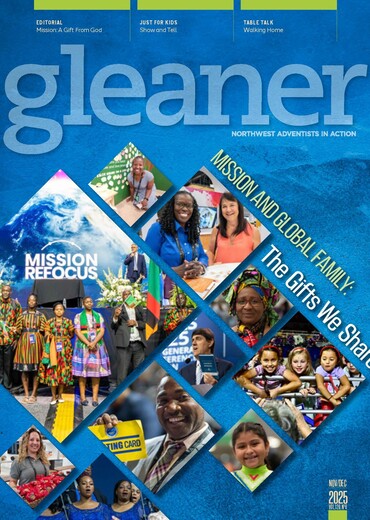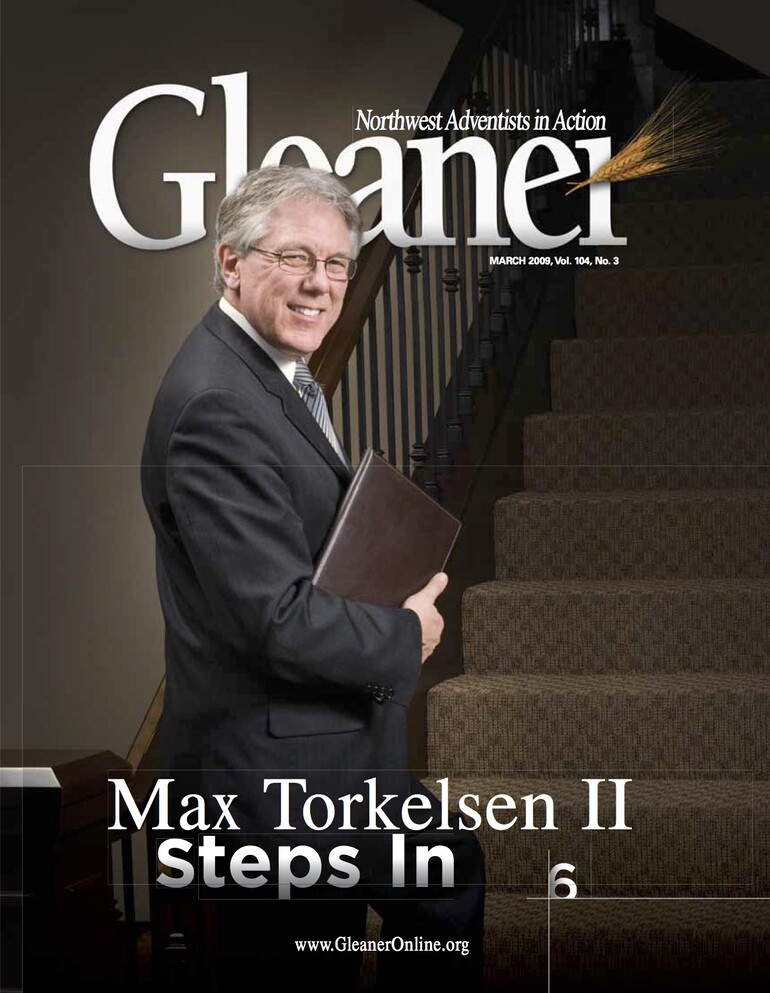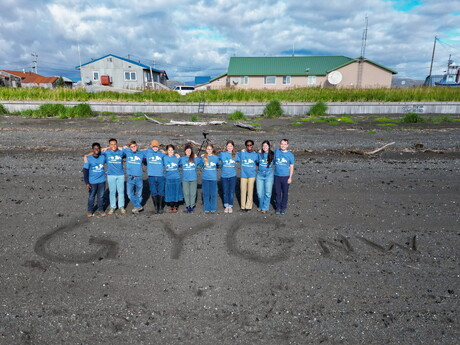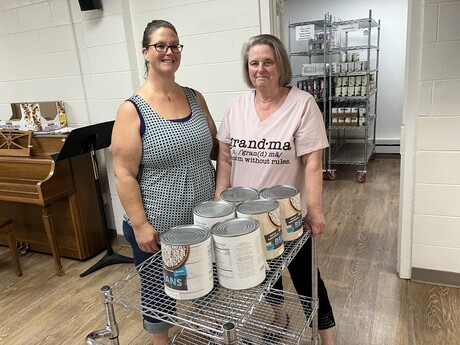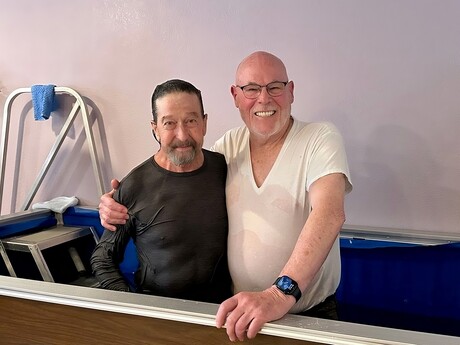Johnny White was on his way to pick up Maria and Gavin Lee, their two-and-a-half-year-old son, from a baby shower for Maria when he totaled the truck in a snowy motor vehicle accident. Maria was eight months pregnant and the sole support of the family of four. I am sitting with the White family in the cheerful family room at the Family Promise office in Wasilla, Alaska. Johnny is a tall well-built man with a slow smile holding four-month-old baby Johnny Lee in his arms. Maria is a small, articulate woman with smooth pale skin and quiet dignity. She resumed their story.
“It wasn’t much of a truck,” she said. “It only cost $750, and we had to fix it before we could drive it.” But the couple had scrimped to buy it, and it was their only means of transportation. Without the truck, Maria had no way to get back and forth to work as a full-time receptionist. It wasn’t much of a job either. She had no benefits, no health insurance, no maternity leave. Most of the money she earned went to pay for Gavin’s day care bill. At this point, the now 3-year-old Gavin, who has been studying me, approaches with his hand held out for me to shake. "Hi," he says earnestly. His eyes are very blue, and he looks a lot like his dad.
Johnny is an Iraqi war veteran, a wounded paratrooper with post-traumatic stress syndrome. He suffers from brutal nightmares, bouts of rage and severe depression. He got a job as an electrician’s apprentice, but in September 2007, as the housing market slowdown began to affect the building trades, Johnny, one of the last hired, was laid off.
Even before the accident, Maria could see disaster looming. "We made mistakes," she said. "We made some poor financial choices." When the possibility of an eviction began looming larger every day, the Whites opted to "drop out honestly," Maria said. They looked for a way to move on.
She squares frail shoulders, accepting responsibility, then reaches down to lift up Gavin who has just fallen off a chair and soothes him as she speaks. “I couldn’t sleep,” she said. “I would lie in bed at night and wonder what we were going to do.” There was a lot to worry about; there was the $1620 per month rent check to be paid, Johnny was out of work, and she could not work past delivery. She applied for WIC. She tried to navigate the public assistance program, and after the lengthy, complicated application process, was told they would not qualify until October by which time she would be jobless and the family behind in their rent.
Without transportation, Maria quit her job. The stress level was unbearable. One morning, she felt her throat closing. She couldn’t swallow, she felt she was choking. Gavin is quiet now, checking out the underside of a chair. Johnny listens while Maria continues. She was admitted to the hospital for a full day of testing and observation. "We needed to know that the baby was OK," said Johnny, gently bobbling his youngest on his knee. "I let them do what they needed to do," Maria went on. "I just kept my eyes shut and slept that entire day." Her family was close by, and someone else was taking care of her for the moment. The relief was short-lived, however, and Maria was released the next day. She had had a panic attack, but her unborn baby was fine.
Knowing they were facing eviction in the middle of winter, the couple tried to find alternatives. There were shelters for her and the children, but no place for the entire family. They considered splitting up just to access these resources; Maria and the kids would go to a shelter, and Johnny would fend for himself. But they just couldn’t bring themselves to do it.
An Army buddy and close friend of Johnny’s came to the rescue and offered his home in Settler’s Bay and shortly thereafter was deployed, leaving the Whites, now with a new baby, to stay with his wife. It was a strained situation from the start. They were expected to provide their own food. They applied for food stamps and got them, but Johnny was excluded. There was no bus service available, and they were a long way from Job Services who asked that they be there from 8 to 9 a.m. daily and again from 3-4 p.m. During the middle of the day, they were expected to job hunt, using the resources at Job Services. It was hard to get there twice a day with a borrowed car. It was hard to find the money for gas, and hard to care for and manage two small children while trying to meet these requirements. They were living off grudging charity.
"It was our lowest point," Maria said, pushing her hair back from her face. Baby Johnny has begun to fuss in earnest, and Maria puts him to her breast under a blanket. Gavin is playing with his dad who nods to emphasize what Maria is saying. "We had to grovel. I felt so powerless, like such an inadequate mother. When Gavin wrote on the wall with a permanent marker, there was nothing I could do to make restitution. We didn’t even know if we could do laundry. She wouldn’t give us our telephone messages or let us call out on her phone." They knew they had to get out of the situation.
The Whites learned about Family Promise and spent their first night in the program with the Seventh-day Adventist Church in Palmer. “There was a double bed set up on a platform for us," Maria remembers smiling, and a bathroom of our own, a bed for Gavin, and even a crib for the baby. It was so cozy and homey. It was also the first night Johnny slept through the night in months. It was the start of something good.
Family Promise helped them access services and programs, assisted as they filled out unemployment forms, and offered day care for the children. They found business clothes for job interviews and helped with resumes. They offered food, showers, a washer and dryer for laundry, a place to stay at night, and friendship. "Family Promise doesn’t feel like a shelter,’ says Johnny, with emphasis. ‘It feels like a home where people take you in unconditionally."
We are still sitting in the Family Promise room, studying the color of the newly painted wall during a lull in the conversation. They have just asked me if I like the color, and I am trying to be tactful. What do you call that, I ask, referring to the wall color? Gavin looks up at me helpfully. "It’s called a wall," he said.
Several weeks ago, Johnny got an e-mail offering a job interview with Home Depot at the Egan Center. The entire family geared up for the interview; they borrowed a car and gas money for the trip to Anchorage. Johnny got himself dressed up and had his resume in hand. They made sure to get there early. Maria stayed in the car with the kids while Johnny went off to his interview, only to return in 10 minutes. There was a mistake, it was a job fair, but there were no interviews. Many other applicants had gotten the same e-mail. Johnny was discouraged, but he urged a reluctant Maria to walk through the fair with him, each with a child. Maria, who insisted she wasn’t dressed right for job-hunting, landed an on-the-spot interview with the Alaska Pacific University’s Rural Adult Native Alaskan educational outreach program. The next day she was offered and accepted a full-time salaried job as an admissions counselor with benefits, health insurance and six educational credits per semester.
“I can see God’s guiding hand in all of this," Maria says with a look of wonder on her face, her small son asleep in her arms. Johnny is nodding his head as Gavin pushes up against his knee. They smile across the room at each other. "If I could say one thing to other homeless families out there," says Johnny, pointing his finger for emphasis, "I’d say don’t give up. There are people out there who care about you and want to help you."
Hope, courage and a sense of determination fill the room. The White family is on its way to try again and to build a new life for themselves.
One family, one promise fulfilled.
